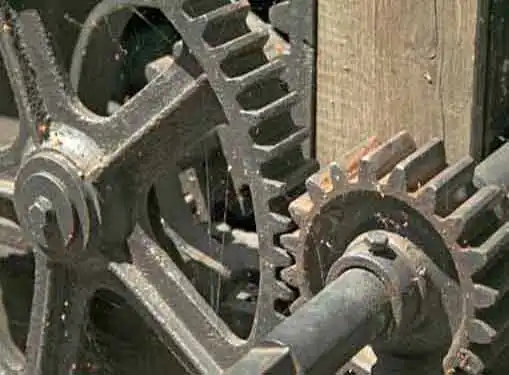Operations Management
When and How to Buy New Equipment
Written by Andrew Goldman for Gaebler Ventures
When increasing capacity, there is a tendency to add an additional piece of equipment. Before you make this major investment, understand that operating two machines is not always better than one.
Before you go out and purchase that second piece of equipment, understand that two machines are not always better than one.

Whether you want to increase your capacity or improve your productivity, the decision to add an additional piece of equipment is serious business.
Depending upon your industry and operation, your additional machine can be a major capital expenditure. As with any major capital expenditure, you want to make sure that you do your financial homework. Adding another machine to increase productivity and/or capacity is not always black and white. Before you add that additional machine, make sure you really need it.
One reason for wanting additional equipment may be that your current machine is operating at full capacity. If this is this case, the additional machine may be justified. First, however, you want to make sure that the full capacity isn't exceeding your demand. You may be operating at full capacity, but if you're building a lot of inventory, then a new machine may not be necessary. Don't fall into the trap of operating your machines at full capacity just to keep them running. Measure your potential output versus your forecasted demand to determine whether you need a new machine.
In my consulting experience, I see small businesses jumping at the opportunity to purchase a new piece of equipment if they find a good deal. While you may save money on the purchase, you can wind up losing money if your productivity dwindles.
Remember; adding more equipment does not necessarily mean increased productivity.
A great example of this is when I was consulting for a bagel commissary business that produced all the bagels for a regional chain. They purchased an additional bagel forming machine because they got a good deal and thought it would increase productivity.
Their new operation ran the two machines at the same time. The problem was that employees had to keep going back and forth between the two machines and the bagels bottlenecked on one machine while the employees were catching bagels off the other. I did some simple time study data and found that the actual throughput was 20% less with the additional machine.
If you add another machine and it creates a bottleneck, you're not helping your process. You're only as fast as your slowest operation. Using the aforementioned example, you can form all the bagels you want per minute, but if you only have one oven, then the speed of bagel formation really doesn't matter. Make sure that you've captured plenty of time study data and calculate some "what-if" situations using pen and paper to be certain you need that equipment.
There are other considerations that can be made before adding an additional piece of equipment to your operation. You should consider all alternatives and the financial implications of those alternatives. Have you considered adding another shift? Have you considered a different style of machinery? In addition, how much more capacity do you really need?
It's probably not worth buying an expensive machine if you only expect your demand to increase by a few percentage points. After all, the additional monthly payments could easily outweigh the additional sales revenue you anticipate.
Andrew Goldman is an Isenberg School of Management MBA student at the University of Massachusetts Amherst. He has extensive experience working with small businesses on a consulting basis.
Share this article
Additional Resources for Entrepreneurs


Conversation Board
How do you decide when to buy new equipment and what equipment you should buy?